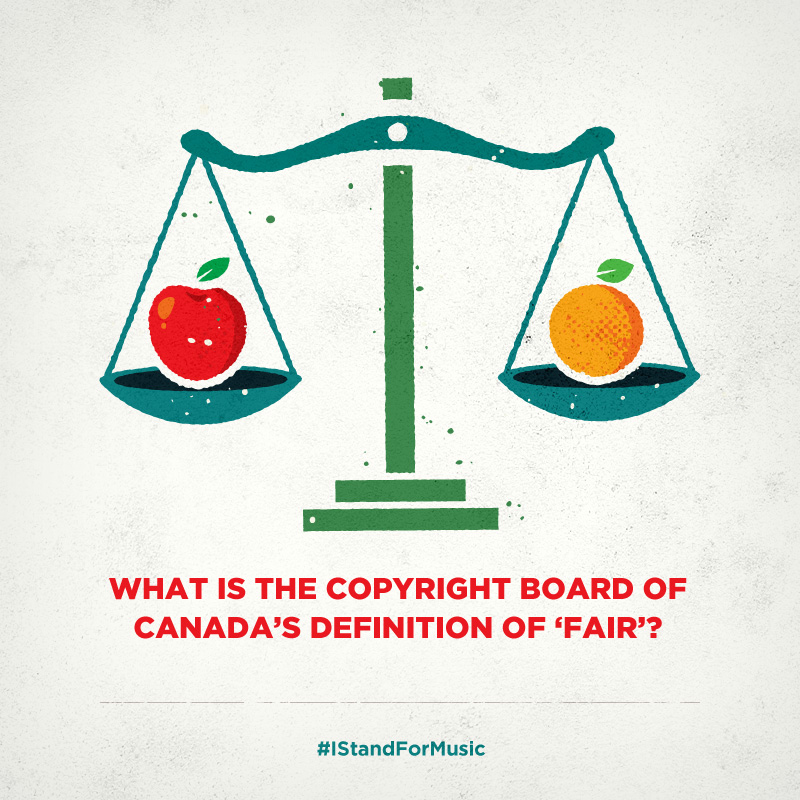This Sunday, April 26th, is World Intellectual Property Day, an annual event to promote discussion of the role of intellectual property (IP) in encouraging innovation and creativity. The date was chosen in recognition of the day the WIPO Convention came into force in 1970, with the goal of increasing the general understanding of IP.
This year’s theme is Get Up, Stand Up, For Music, a welcome ‘call to arms’ in support of artist rights. This is the 15th World IP Day, and the first to specifically highlight music, which is appropriate as music and IP are intrinsically linked. The event provides an opportunity to reflect on how intellectual property affects music, and how we listen to it. We don’t often think about it when listening to our favourite song, but IP plays a critical role in taking that song from the artist’s conception to our speakers at home.
Today, music fans have more options than ever to enjoy their favourite music and to discover new artists. There are now more than 400 licensed music services worldwide, with a model to suit all consumer preferences, from subscription services, to digital downloads, to the physical world of CDs, vinyl, and deluxe box sets. The music industry has embraced the digital revolution, which has provided artists with new avenues to bring their music to the global marketplace. It is intellectual property, and specifically copyright, that allows creators to sell and license their music in this wide array of platforms.
But regardless of the medium, the creator’s rights must be respected and fairly compensated. With so much access to music available today, it can be easy to take for granted the talent and years of practice an artist puts into their craft, as well the efforts and investments of the many people working to nurture and develop their career. It is important to remember that long before a song hits the radio or your earbuds, a team of professionals work to support the artist’s creative development and use their expertise to bring the artist’s talent to market.
Record companies remain the primary investors in artist careers. The IFPI’s Investing in Music report estimates that record companies have invested more than US$20 billion in artists and repertoire (A&R) and marketing over the past five years. In fact, the music industry invests a greater proportion of global revenues in A&R than most other sectors do in research and development (R&D). The music industry’s investment of 28% of revenues in A&R exceeds the R&D investment of industries such as pharmaceutical and biology (14.4%), software and computing (9.9%), or technology hardware and equipment (7.9%) sectors. Again, it is copyright that makes this investment possible. Copyright allows the industry to gain a return on these A&R and marketing costs, and reinvest those resources into the next generation of artists. This is why a secure copyright framework is so critical to the music industry.
While the music industry has made great strides in developing the digital marketplace, piracy remains a major problem for the industry, which stifles sustainable growth. This is where we need to ‘Stand Up for Music’, and support measures that will help tackle the problem. Today’s music piracy takes place in many forms, from unlicensed cyberlockers, BitTorrent fire-sharing, stream-ripping, and unauthorized distribution through mainstream social media networks. The IFPI’s Digital Music Report estimates that 20% of fixed-line internet users worldwide regularly access services offering copyright infringing music. The report also identifies that major brands, such as Microsoft and the Royal Bank of Canada, are fueling the piracy ecosystem with advertising dollars from legitimate businesses. Research quoted in the report found that 596 infringing sites generated US$227 million per year in advertising revenue, none of which goes to the artists, songwriters, and labels whose music attracts users to these sites. Rights holders around the world continue to push for support to tackle this evolving problem from governments and internet intermediaries.
Artists are among the most powerful voices in this fight. We have seen that when artists speak out in support of their rights, they can have a strong impact in the conversation. This was made clear this week, as artists such as Leonard Cohen, Randy Bachman, and Gordon Lightfoot spoke up in support of the federal budget’s proposal to extend the term for copyright of sound recordings in Canada to 70 years from 50 years. Similarly, last summer, artists such as the Barenaked Ladies, Brett Kissel, and Bob Ezrin brought significant attention to the Copyright Board of Canada’s Tariff 8 decision, which set the rate for music streaming services in Canada at less than 10% of rates that the same services pay in the United States and many other countries. The issue united Canada’s music sector, with more than 80 music industry associations and labels, led by Music Canada, CIMA, ADISQ and Canadian Council of Music Industry Associations (CCMIA), joining together to form “I Stand for Music”, a coalition that continues to raise public awareness about the disastrous effects of the Tariff 8 ruling.
To fully realize the potential of music’s ever expanding digital marketplace, we need to encourage a fair licensing environment and a world where copyright is respected and music is fairly valued. With that in mind, I would like to use the occasion of World IP Day to encourage all those who appreciate the value of music in our lives to advocate for artist rights, and Get Up, Stand Up. For Music.







Music Canada